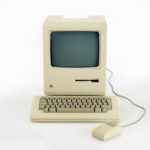International Mobile Phone Recycling Day is observed on January 24, each year, since 2017. Initially, International World Mobile Phone Day was celebrated on January 26, in both the years 2015 and 2016, before the date changed. The reason behind this is because the observance was part of a larger international campaign called The Forest is Calling — a call to action attempting to raise awareness about the far-reaching effects of recycling mobile devices on the ape population in the Eastern Democratic Republic of the Congo (E.N.D.C.). The Jane Goodall Institute (J.G.I.) launched this program in 2015, and it has sparked a global movement in which individuals commit to either keeping their phones longer or discarding them ethically and properly.
History of International Mobile Phone Recycling Day
In 2015, the first official International Mobile Phone Recycling Day was held. The Jane Goodall Institute established the day to raise awareness about the negative impacts of smartphone consumerism on the primate wildlife population in the eastern Democratic Republic of the Congo and other developing countries. Dr. Jane Goodall, a primatologist, began her groundbreaking research on Tanzania’s wild chimps in 1960. Her work extended nearly 60 years and is one of the world’s longest-running wildlife study programs. Not only that, but her studies helped to define how conservation can (and should) include both the environment and the influence on local communities. As a result, the J.G.I. was established in 1977 to carry on the work of Dr. Goodall, particularly in the areas of primate conservation and species protection.So, where do mobile phones and other technological devices come into all of this? On June 3, 2014, “Time” magazine published an article titled ‘There May Be Conflict Minerals in Your Smartphone.’ This highlighted how major technology companies receive crucial metals for their products from mines in the D.R.C. and other central African countries. Some of the money is used to fund the region’s ongoing violent conflicts, which have resulted in large casualties, increased criminality, and environmental degradation. The Dodd-Frank Wall Street Reform and Consumer Protection Act was signed into law in 2010, requiring firms to declare the amounts of “conflict minerals” used in their technology-based products. As a result, there is now more of an obligation for digital firms to purchase their raw materials ethically.It’s worth taking a look back at the evolution of the cell phone to understand how this incredible piece of technology has evolved to the point where it’s practically an extension of the self. The honor of inventing the first portable cell phone, which was released in 1973, goes to Motorola. Martin Cooper, a Motorola engineer, designed it, and it cost around $10,000. Following this, numerous prototypes appeared, particularly during the 1990s’ “cellular revolution.” The unveiling of Apple’s first-ever iPhone in 2007 marked the next watershed point in smartphone history. With almost half of the world’s population now owning a cell phone, the world has been irrevocably changed by its debut.
International Mobile Phone Recycling Day timeline
Martin Cooper, a Motorola executive, invents the first-ever portable phone.
A mobile phone recycling company, ReCellular, is founded in the United States.
A Vodafone developer sends the first text message to a phone, which reads “Merry Christmas.”
This Act makes it compulsory for cell phone retailers to collect cell phones from consumers, for safe disposal or recycling.
The Dodd-Frank Act compels tech companies like Google and Apple to be transparent about their mineral sourcing.
International Mobile Phone Recycling Day FAQs
Why is recycling mobile phones important?
Recycling is one of the most effective ways to contribute to environmental protection. E-waste contains harmful components that can pollute the environment and water sources.
How much gold is in a mobile phone?
A typical cell phone has 0.034 grams of gold in it. The US Geological Survey did the study that led to this statistic. There are around 72 pounds of gold in every million phones discarded.
What percentage of mobile phones is currently recycled?
Only roughly 15% of cell phones in the United States — which is the world’s biggest producer of e-waste — are recycled. Annually, about 150 million phones are discarded, so the number of phones recycled is pitiful.
How to Observe International Mobile Phone Recycling Day
-
Find a facility near you
Several J.G.I. locations in the United States collaborate with recycling organizations to make recycling more accessible. Find one near you, or a comparable facility, and understand how they dispose of or recycle your electronic debris. J.G.I. makes this quite simple in the United States. Simply gather all of your e-waste and ship it — for free — to a collecting partner.
-
Heed the call to action
If the reasons indicated earlier in this article aren't convincing you of the need of recycling your e-waste, we have a few more to offer. Recycling will not only help to prevent environmental damage, but it will also assist to break the vicious 'demand-supply' cycle, of which we are all part. As a result, people in affected areas will have a better chance of finding work, and a major portion of the funding that goes to armed warfare and other social problems in developing countries, such as the D.C.R., will be cut off.
-
Help get more pledges
Ironically (or not), technology is also a gift in the way we can now so easily get the word out. Use social media to spread the message about the importance of recycling your old phones and other tech devices. By participating in J.G.I’s call to action movement, people can either pledge to keep their mobile phones for longer than the two-year norm, or they can choose to recycle.
5 Facts About Cell Phones Which May (or May Not) Surprise You
-
Your toilet handle’s cleaner than your phone
Our phones have roughly 18 more hazardous germ types than the average toilet handle, because of the fact that we carry them with us everywhere.
-
We check our phones 110 times a day
We check our phones 110 times a day on average, especially between 5 to 8 p.m. apparently.
-
FOMO is a real thing now
There is such a thing as the fear of being without your phone — or network — and it’s called ‘nomophobia.’
-
More phones than people
There are over 7.2 billion mobile phones in the world — more than the average global population.
-
Recycling e-waste can be lucrative
Gold, silver, and other precious metals worth roughly $60 million are contained in mobile phones being discarded.
Why International Mobile Phone Recycling Day is Important
-
It can help make a difference
Every day, an estimated 350,000 cell phones are discarded around the world. This adds to the annual production of 50 million tons of e-waste. Recycling can not only help reduce this number — and the health consequences it has on all species on this planet — but it can also help offset market demand. As a result, countries like the D.C.R, which suffer from corruption and unending wars as a result of profit motives, may see more favorable consequences.
-
It impacts the world at large
E-waste adds to the release of hazardous compounds into the environment, affecting the health of all living creatures, including humans. More than 200 million individuals are in danger because of the health problems that e-waste can create. The majority of this e-waste is dumped in poor countries, endangering the people who live there. There is no justice in this, hence a communal movement is required to help mitigate the damage.
-
It inculcates practices of sustainability
Recycling of any form is always a good idea because it encourages a more sustainable and environmentally conscious lifestyle. Being environmentally conscious is not enough; we must demonstrate our commitment to halting the flood of destruction that follows our consumption via our actions. The need for phones is lowered by recycling them, and the waste may be safely disposed of.
International Mobile Phone Recycling Day dates
| Year | Date | Day |
|---|---|---|
| 2023 | January 24 | Tuesday |
| 2024 | January 24 | Wednesday |
| 2025 | January 24 | Friday |
| 2026 | January 24 | Saturday |
| 2027 | January 24 | Sunday |
























